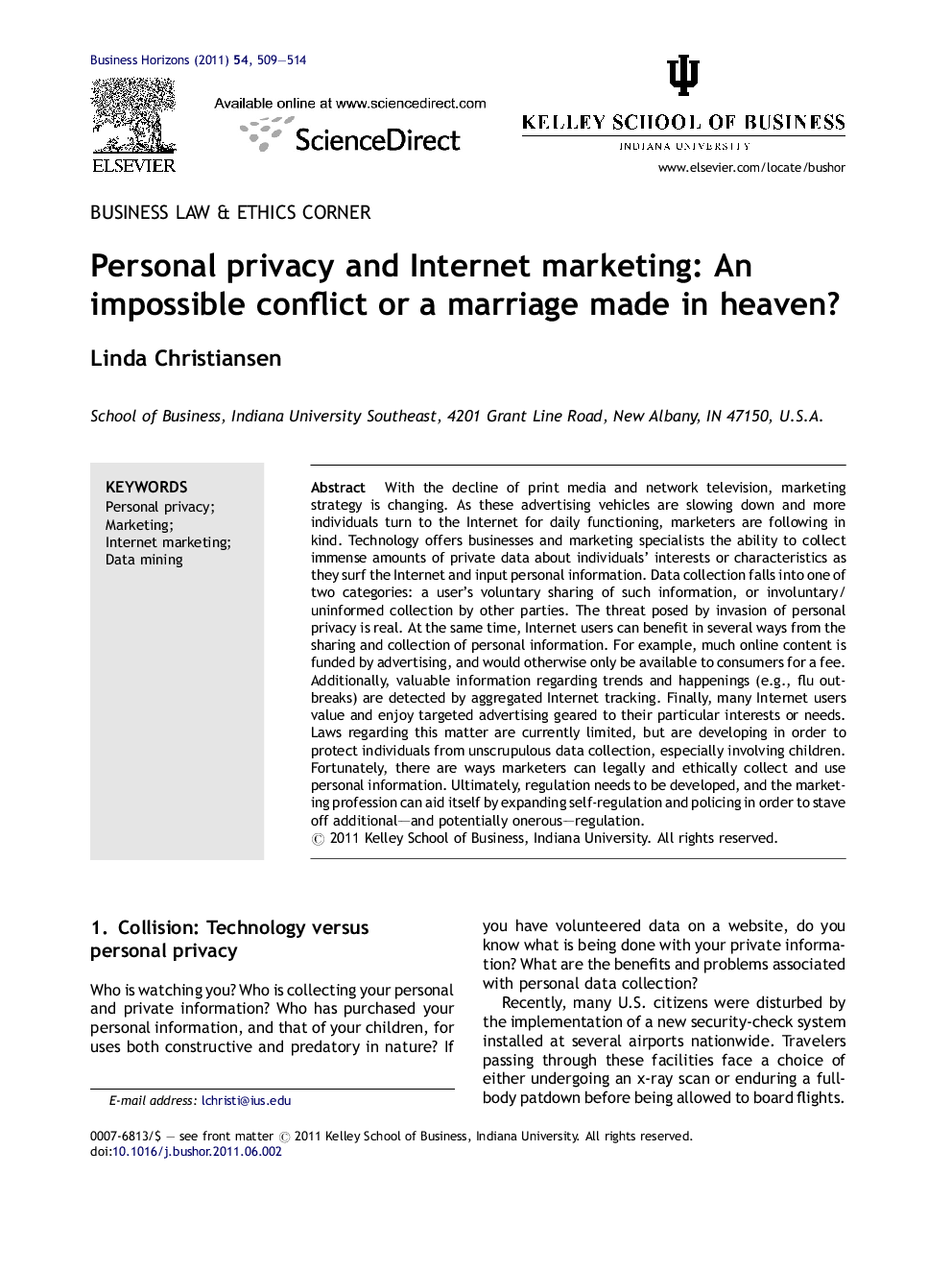| Article ID | Journal | Published Year | Pages | File Type |
|---|---|---|---|---|
| 1014310 | Business Horizons | 2011 | 6 Pages |
With the decline of print media and network television, marketing strategy is changing. As these advertising vehicles are slowing down and more individuals turn to the Internet for daily functioning, marketers are following in kind. Technology offers businesses and marketing specialists the ability to collect immense amounts of private data about individuals’ interests or characteristics as they surf the Internet and input personal information. Data collection falls into one of two categories: a user's voluntary sharing of such information, or involuntary/uninformed collection by other parties. The threat posed by invasion of personal privacy is real. At the same time, Internet users can benefit in several ways from the sharing and collection of personal information. For example, much online content is funded by advertising, and would otherwise only be available to consumers for a fee. Additionally, valuable information regarding trends and happenings (e.g., flu outbreaks) are detected by aggregated Internet tracking. Finally, many Internet users value and enjoy targeted advertising geared to their particular interests or needs. Laws regarding this matter are currently limited, but are developing in order to protect individuals from unscrupulous data collection, especially involving children. Fortunately, there are ways marketers can legally and ethically collect and use personal information. Ultimately, regulation needs to be developed, and the marketing profession can aid itself by expanding self-regulation and policing in order to stave off additional—and potentially onerous—regulation.
